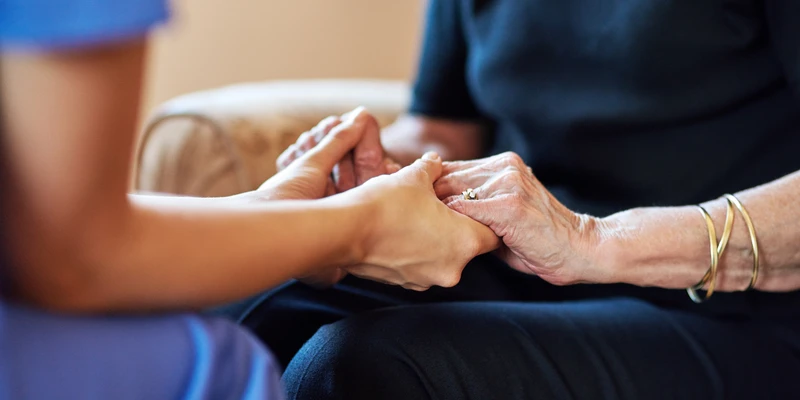Watching your loved one battling addiction is difficult, and when they experience a relapse, it can be even more heartbreaking. You may feel anxious, afraid, frustrated, sad, and even angry because it’s natural to wonder what went wrong and how you can help your loved one get back on track.
The truth is that relapse is a part of the recovery process for those who are struggling with addiction. Therefore, it doesn’t mean failure, nor does it disregard the progress of your loved one. Instead, it’s an opportunity to reassess and reinforce relapse strategies.
In this blog post, our experts from Sierra Recovery share with you some of the things you can do when your loved one experiences relapse.

Understanding Addiction Relapse
Addiction is a chronic disease that is similar to other conditions like diabetes or high blood pressure, so relapse is often part of the reality of the recovery journey. Research studies suggest that around 40 to 60 percent of people who are in recovery from their substance use disorder or addiction are experiencing at least one relapse.
It’s essential to note that it doesn’t mean that treatment is not working and they will not have any more control over their sobriety because relapse can happen for various reasons. It could be because of stress, emotional triggers, exposure to substance use, or even trauma.
Instead of focusing on what went wrong, it’s more important that you help your loved one recognise what led to the relapse and how both of you can find a way forward.
Helping a Loved One After Relapse
It’s frustrating to see your loved one relapse, but don’t lose hope. With the right support and treatment, you can help them regain control over their drug use. Here are some strategies you can use to help your loved one who has experienced a relapse:
Avoid Judgement
When your loved one experiences a relapse, it’s easy to feel disappointed. You might even feel like all the effort they put into achieving and maintaining sobriety was lost and even wasted. But addiction doesn’t work that way; relapse doesn’t erase their hard work because it’s just a setback.
One of the most important things you can do is to offer support and avoid judgement and criticism, as this can only push them further into shame and make it harder for them to reach out for help.
Recognise the Signs of Relapse
Relapse doesn’t always happen suddenly. Most of the time, you’ll notice some warning signs that can indicate that your loved one might be using drugs again. Some common telltale signs of an impending relapse may include increased anxiety, mood swings, irritability, or isolation.
You could also notice your loved one skipping support group meetings and reconnecting with old friends who were engaged in substance use, which are considered red flags. It’s also quite visible to them that they neglect taking care of themselves, including poor eating habits, sleep problems, or even lacking motivation.
If you notice any of those signs, it’s recommended that you talk to your loved one and express your concern or remind them of their goals before they reach full relapse.
Express Support
When your loved one experiences relapse, they can feel ashamed about it, which can cause them to withdraw from their support system. If this happens, it’s important that you continue to express your support that they have made progress and that their recovery process matters. For example, you can tell them, ‘I believe in you, and I know you can get through this.’
Practise Relapse Prevention Strategies
Helping your loved one develop or strengthen the relapse prevention strategies they’ve acquired from the treatment programme can give them a roadmap to regain control. You need to encourage them to identify their triggers, such as stress, negative emotions, and even social settings or occasions that induce drug or alcohol use.
You could suggest that they re-establish a support network by reaching out again to support groups, therapists, and recovery programmes in treatment centres.
In addition, they can create structured daily routines with healthy habits, such as regular physical exercise, mindfulness practices, and balanced nutrition.
Encourage a Return to Treatment
One of the most crucial steps after a relapse is seeking professional help. However, for most people who experience relapse, returning to rehab is easier said than done. Hence, your role here is to encourage them to return to treatment and emphasise that rehab doesn’t mean they’ll start over again; it means reinforcing the skills they’ve already built.

Benefits of Returning to Rehab After Relapse
Going back to rehab after relapse can provide your loved one with essential support and care to help them regain their footing in sobriety. Here are some benefits of returning to rehab:
Access to Professional Support
In a rehab facility, your loved one receives guidance from addiction treatment specialists who can help them understand the underlying reasons behind their relapse. These experts can also help them develop some strategies to prevent potential future occurrences of relapse.
Addressing Triggers
Relapse typically happens because of exposure to some triggers such as stress, social environments, toxic relationships, family problems, or past trauma. Hence, a structured addiction treatment programme can help them identify and address these triggers in a safe and supportive setting.
Strengthening Relapse Prevention Skills
Even if your loved one has entered and completed treatment programmes in rehab before, there’s always more to learn. New coping strategies, therapies, and group discussions can provide them with fresh perspectives on how they can manage their cravings and stress. They can experience or acquire new coping strategies, learn therapy techniques, and have group discussions.
Treatment Options When a Loved One Relapses
Depending on the severity and nature of the relapse, different levels of treatment may be necessary. Some of the addiction treatment options may include:
Residential Rehab
Residential rehab provides a highly structured and supportive environment where your loved ones can receive round-the-clock care, which is beneficial for those who are struggling with addiction or those who have experienced relapse. By removing the person from their daily environment where triggers are more prevalent, residential treatment allows them to focus entirely on their recovery, develop coping mechanisms, and establish long-term goals.
Medical Detox
If your loved one has returned to heavy consumption of substances, then a medical detox program may be necessary to manage their withdrawal symptoms safely.
It’s important to note that detox at home is not recommended because it can be both physically and emotionally challenging and can be dangerous without medical supervision.
Therapies
Therapies remain an essential intervention for people who are struggling with addiction and those who experience a relapse. For instance, Cognitive Behavioural Therapy (CBT) can help them identify and change negative thought patterns that contribute to substance use. At the same time, Dialectical Behavioural Therapy (DBT) can address emotional regulation problems and unhealthy coping mechanisms. If your loved one has experienced traumatic events, some experts may use trauma-informed therapy to address them because they might contribute to the development of addiction relapses.
Relapse Prevention Programmes
Relapse prevention programmes are designed to equip your loved one with the skills necessary to avoid future relapse. These programmes typically include educating them on how to identify triggers and strategies to manage stress and cravings. A relapse prevention programme can significantly improve their long-term recovery success rates.

Help Someone Overcome Addiction With Sierra Recovery
A relapse doesn’t mean the end of the road. When we change our perspective, we can see it as an opportunity to learn more about strategies to help prevent potential relapse. Don’t lose hope; recovery is always possible with the right treatment and support system.
If your loved one is ready to take the next step, contact Sierra Recovery today and help them reclaim their future. We offer comprehensive treatment programmes, from residential rehab and medical detox to personalised therapy sessions, all of which aim to provide your loved one with the tools they need to promote long-term recovery and stay sober.







